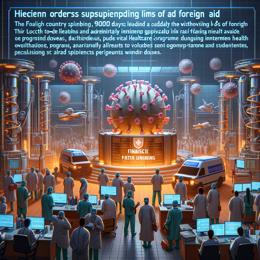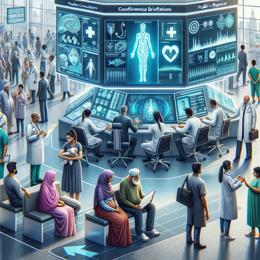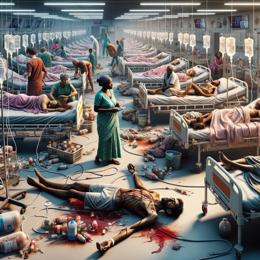Image created by AI
Impact of Luigi Mangione's Arrest on McDonald’s Online Reputation and Broader Healthcare Discussions
Google recently intervened to remove a series of inappropriate reviews from the McDonald’s outlet in Altoona, Pennsylvania, following the arrest of Luigi Mangione, a suspect in the high-profile murder of UnitedHealthcare CEO Brian Thompson. The arrest, which was facilitated by a tip-off from an employee at the restaurant, triggered an onslaught of public scrutiny and negative reviews, many of which deviated from personal dining experiences to broader, unrelated healthcare criticisms.
The flood of negative reviews quickly escalated into insults and blame directed not just at the restaurant but also at the healthcare industry. Terms like “rats” and “narc” were used metaphorically to describe both the physical and operational aspects of the outlet and to comment on the healthcare system. However, according to Google’s policies which demand that reviews be an honest reflection of personal experiences, these reviews were pulled down to preserve the integrity of the review system.
Simultaneously, the incident has reignited a heated discussion about the state of healthcare in the United States, particularly focusing on UnitedHealthcare, the company Thompson led. Critics and consumers have taken their grievances to social media platforms, detailing personal negative experiences with the healthcare provider, including high claim denial rates that significantly impact patient care. Value Penguin, a consumer research site, points out that UnitedHealthcare has a denial rate of 32 percent, the highest in the country.
These user anecdotes have blossomed into a larger debate about the cost and quality of healthcare in the U.S. While a Gallup poll indicates that 65 percent of Americans are satisfied with their personal coverage, only 28 percent feel positively about the national situation. These statistics reveal a stark dichotomy in the perception of personal versus public healthcare services, highlighting the challenges many face with insurance companies in the broader healthcare ecosystem.
American healthcare expenses continue to climb, with 2022 figures from the US Centers for Medicare and Medicaid showing a per person expenditure of $13,493, or 17.3 percent of the GDP. This positions the U.S. among the countries with the highest healthcare costs globally, an issue that remains a perennial point of contention in political and social arenas.
Google’s intervention at the Altoona McDonald’s may have mitigated immediate reputational damage by removing unauthentic reviews, but it has also spotlighted a critical, ongoing national conversation about healthcare, corporate responsibility, and consumer protection.










